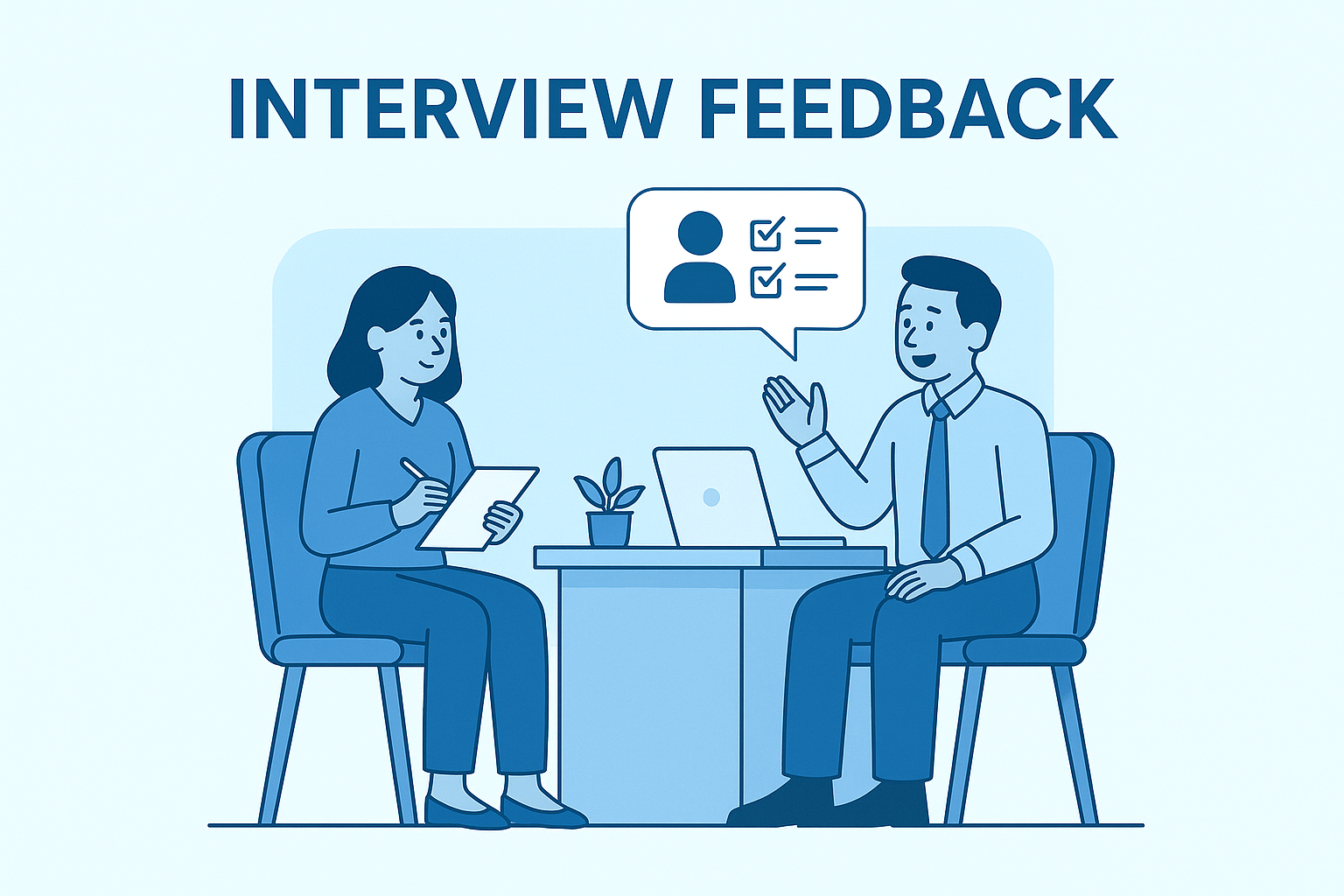Interview Feedback: How to Deliver Fair, Constructive, and Actionable Responses
What is Interview Feedback?
Interview Feedback refers to the structured evaluation and written or verbal comments provided by interviewers after assessing a candidate during the hiring process.
It captures observations about a candidate’s skills, experiences, behavioral attributes, and cultural fit based on standardized interview questions.
Proper interview feedback is crucial not only for making informed hiring decisions but also for supporting a strong Candidate Experience and protecting the company’s brand image.
Why Interview Feedback Matters
In a well-structured recruitment process, interview feedback plays several essential roles:
Enhances Hiring Decisions
Aggregating multiple interviewers’ evaluations leads to better and more objective hiring choices.Promotes Fairness and Transparency
Providing consistent, competency-based feedback reduces bias and supports equal opportunity hiring practices.Improves the Candidate Experience
Offering timely and thoughtful feedback—even to rejected candidates—shows professionalism and respect, strengthening your employer brand.Supports Internal Learning and Calibration
Structured feedback allows hiring teams to continually refine their evaluation standards and identify areas for process improvement.

Key Elements of Effective Interview Feedback
Good interview feedback should be:
Attribute | Description |
|---|---|
Objective | Focused on observable behaviors and specific examples, not personal opinions. |
Competency-Based | Tied directly to job requirements and role-specific competencies. |
Balanced | Highlight both strengths and areas for improvement. |
Actionable | Offer insights that the candidate (or hiring team) can realistically act upon. |
Professional and Respectful | Always written in a tone that is courteous, even when rejecting candidates. |
How to Write High-Quality Interview Feedback
Follow these steps to create structured, effective feedback:
Summarize Key Observations
Focus on how the candidate performed against the key competencies defined in the Job Requisition.Use a Scoring System
Rate the candidate using consistent evaluation tools, such as a Candidate Evaluation Form, ensuring all interviewers align on standards.Cite Specific Examples
Reference particular answers or behaviors observed during the interview to support your evaluation.Maintain Neutral Language
Avoid subjective or emotional wording. Instead of saying “I didn’t like their attitude,” say “The candidate demonstrated limited collaboration skills in their project example.”Offer Developmental Feedback (Optional for Internal Notes)
When appropriate, suggest areas where the candidate could improve for future opportunities.
Best Practices for Delivering Interview Feedback to Candidates
Timeliness Matters
Send feedback within a few days of the interview while impressions are fresh.Personalize When Possible
Avoid generic rejections. Tailor your feedback to the candidate’s strengths and gaps where appropriate.Be Cautious About Legal Risks
Never reference age, gender, nationality, disability, or other protected characteristics. Focus purely on skills, experience, and role fit.Close with Appreciation
Always thank the candidate for their time and interest in the position.
Common Mistakes to Avoid
Vague Comments
Saying “not a good fit” without explanation provides no value.Overly Negative Tone
Even when rejecting candidates, the tone should be respectful and constructive.Inconsistent Feedback Across Interviewers
When using Interview Scheduling and panel interviews, ensure alignment among all assessors to avoid mixed messages.Skipping Feedback Entirely
No feedback can leave candidates feeling ignored and damage your reputation.
Summary
Delivering structured, fair, and timely interview feedback is not just a good practice—it’s essential for building a strong talent brand and making better hiring decisions.
Organizations that prioritize effective feedback create better candidate experiences, foster continuous improvement, and maintain a competitive edge in recruiting top talent.
By using standardized evaluation methods and focusing on clear, actionable feedback, companies can turn every interview—successful or not—into a positive engagement opportunity.
FAQ: Interview Feedback
Q1: Should feedback be shared with rejected candidates?
A1: Ideally yes, especially for final-round candidates. Constructive feedback improves their perception of your company and may keep them engaged for future roles.
Q2: What should not be included in interview feedback?
A2: Avoid mentioning protected attributes (like age, race, gender), and focus purely on job-related skills and competencies.
Q3: How can interview feedback improve hiring processes?
A3: Analyzing aggregated feedback across candidates helps identify if interview questions or evaluation criteria need adjustments, aligning with overall Talent Pipeline development strategies.
HR Glossary: Master the Language of Modern HR
From recruiting candidates to onboarding new team members, MokaHR gives your company everything you need to be great at hiring.
Subscribe for more information

